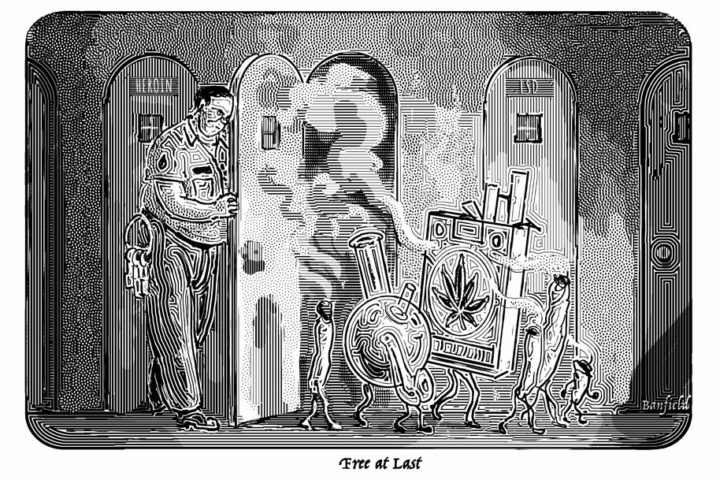Books Reviewed
America has a rhetoric problem. Our political rhetoric has never been particularly decorous, but in recent years, fueled by the internet and social media—and especially by the accelerating decline of American education—public discourse has collapsed into a slough of name-calling, pervasive obscenity, hysterical claims, and unashamed irrationalism.
Oddly enough, rhetoric’s prestige in the academy is at its highest in centuries. This reflects postmodernism’s dominance of contemporary intellectual discourse. In a world lacking objective truths there can only be a variety of “narratives,” deployed as instruments of personal or political power—and the master science of the narrative is rhetoric.
This situation bears more than a passing resemblance to that of classical Greece before the Socratic revolution of the late 5th and 4th centuries B.C. The sophists and rhetoricians pilloried by Plato in dialogues such as the Protagoras and the Gorgias prided themselves on their ability to make persuasive speeches in defense of any cause, and sold their skills to prospective litigants and politicians. It was rhetoric’s claim to “make the weaker argument the stronger”—to make the weaker case prevail, whether in courts or public assembly. Such rhetoric employed deliberately fallacious arguments (“sophistry”) as well as ad hominem attacks and emotional manipulation.
Because of this, Plato’s Socrates concluded, rhetoric was no art but merely a “knack.” What aspiring young politicians really needed wasn’t (simply) skill at speaking, but a substantive knowledge of human affairs, available only through the disciplined study of philosophy. But this apparent dismissal of rhetoric could not be Plato’s last word—after all, Plato’s Socrates was himself a master of rhetoric, even as he spoke contemptuously of it.
* * *
Aristotle’s Art of Rhetoric (circa 336 B.C.) is the earliest surviving Western treatise on the subject and continues to be studied as a living work today. Aristotle makes clear at the outset that he shares Plato’s dissatisfaction with the state of the discipline, and offers a corrective to it. As Robert C. Bartlett, Behrakis Professor of Hellenic Political Studies at Boston College, makes clear in an interpretive essay appended to his splendid new translation, Aristotle’s Rhetoric is itself a rhetorical tour de force. The novelty of Aristotle’s approach lies in his emphasis on the centrality in rhetoric of “argument” or “reasoning” (logos), as opposed to extraneous appeals to a listener’s sentiments. As his own argument develops, however, Aristotle quietly rehabilitates much of rhetoric’s dark side that he initially seemed to dismiss. The dangers coexistent with rhetorical ability can be kept in bounds—but only if rhetoric is properly understood not as an autonomous art or science, but as subordinated to the study of human or political affairs, particularly “ethics” or the study of character.
Tellingly, when Aristotle addresses the “modes of persuasion,” he makes clear that argument or reasoning by itself is insufficient. An orator must also present himself—his “character”—in a certain way, so as to gain the audience’s sympathy and establish his own credibility (hence his recommendation to begin a speech with a formulaic opening known as the captatio benevolentiae). Most importantly, he must go to school on the human passions. Anger, envy, hatred, pity, indignation, and other emotions need to be understood so as to enhance the persuasiveness of one’s arguments, whether in response to the manipulations of others or even in an offensive mode.
Thomas Hobbes, who regarded Aristotle’s ethics and metaphysics as dangerous drivel, nonetheless held, as biographer John Aubrey writes, that Aristotle’s “rhetorique and discourse of animals was rare.” But Hobbes’s admiration was directed primarily to Aristotle’s analysis of the passions, rather than to his larger defense of rhetoric. Hobbes viewed the rhetorical disputes of classical Greece and Rome as a prime source of political instability—an attitude that became characteristic of the modern Enlightenment, with its revisioning of the relationship between politics and science or philosophy. The new public authority enjoyed by science necessarily devalued the role of rhetoric in political life. This remains very much the story in contemporary America—despite the fact that in the early days of the republic, political rhetoric enjoyed a golden age.
* * *
Contemporary political speech’s most characteristic failure is its inability to construct coherent arguments. This is not just a failing of our political class, but reflects a wider cultural malaise. Schools no longer teach English grammar or composition in any formal way. Logical fallacies can properly be employed as part of a larger rhetorical strategy—but only if such fallacies are perceived as such by their authors. (Colleges could do worse than require a course in logic.) The social justice warriors’ weaponization of words to destroy adversaries personally and advance political causes in non-democratic ways is deplorable. From this perspective, Hobbes was not wrong to see rhetoric as a potentially destabilizing force in republican polities. To recover a fresh and salutary perspective on these issues, there is no better place to start than Bartlett’s translation of Aristotle’s Rhetoric.




